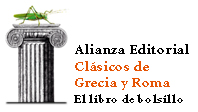El primer artículo de un filólogo clásicoA Scholar’s First Article
William M. Calder III
University of Illinois at Urbana-Champaign
William Musgrave Calder III (1932-2022) nació en Brooklyn (Nueva York). Cursó su grado y máster en la Universidad de Harvard y en 1958 se doctoró en la de Chicago con una tesis sobre la técnica dramática de Sófocles. Fue profesor en la universidad de Columbia, en Nueva York (1960-1976); en la de Colorado, con sede en Boulder (1976-1988); y, finalmente, en la universidad de Illinois (desde 1988 hasta su jubilación y nombramiento como profesor emérito, bien entrado el siglo XXI). Como continuación de su tesis doctoral, en su primera etapa investigadora se dedicó al campo de la tragedia griega, con aportaciones también a la epigrafía griega. La publicación de tres cartas de U. von Wilamowitz-Moellendorff (Calder 1970) constituyó su particular camino de Damasco, pues desde entonces dirigió progresivamente sus esfuerzos a la historia moderna de la filología clásica (Calder 1984a y 1998). Llegó a convertirse, así, en el mayor experto mundial en Heinrich Schliemann y, sobre todo, en Wilamowitz, en cuyo recuerdo tuvo incluso la ocurrencia de llamar «Villa Mowitz» a su casa en Urbana (Illinois). Coeditó una obra de referencia con biografías de filólogos clásicos de la modernidad (Briggs y Calder 1990). También es autor, con diferentes colaboradores, de amplias bibliografías sobre la historia moderna de la filología clásica, para las que se impuso la norma de incluir solo títulos pertenecientes a su extensa biblioteca personal (Calder y Kramer 1992, Calder y Smith 2000).
Resumen
Se proporcionan al joven filólogo clásico consejos prácticos para la elaboración y publicación de su primer artículo académico, incluyendo los siguientes aspectos: consejos generales y colaboración con el director, elección del tema, metodología de la investigación, envío del artículo a la revista, respuesta a la evaluación del artículo y consejos finales. Se recomienda colaborar con un director maduro, cuya ayuda debe agradecerse debidamente. Conviene seleccionar un tema concreto, cuya bibliografía sea abarcable. En la realización de la investigación, es necesario trabajar con las fuentes primarias y con los estudios secundarios consolidados (los «grandes libros»), en lugar de con libros derivativos. Hay que cuidar el formato y la presentación formal del original. Se desaconseja la presentación simultánea del artículo a más de una revista. Se explica cómo funciona el sistema de evaluación de las revistas y cómo hay que responder a la evaluación recibida. Se añaden dos consejos finales: suscribirse a la revista que publica el artículo y encargar separatas extra del trabajo, para difundirlas en la comunidad universitaria como medio de autopromoción académica.
Palabras clave: investigación académica; dirección; publicación; filología clásica; evaluación
Abstract
Some advice is provided to young classical scholars for the elaboration and submission of their first academic article. The following aspects are covered: general orientations, collaboration with the supervisor, choice of subject, method of treatment, submission, system of refereeing and response of the author to the evaluation, and final suggestions. It is strongly recommended to work in close cooperation with a senior scholar, whose help must be duly acknowledged in the article. It is preferable to choose a narrowly defined subject, where all previous literature can be controlled. During the stage of research, it is necessary to use the primary sources plus the «big books», instead of derivative works. Careful attention must be paid to the set-up of the article and to the preparation of the manuscript. It is explained how the system of «referee reports» works and how the author should answer to these reports. It is preferable to avoid the practice of «double submission». Two final suggestions are appended: to subscribe to the journal that publishes the article and to order extra offprints of the article, so that they can be distributed among colleagues as a means of academic self-advertisement.
Keywords: academic research; supervision; publication; classical philology; article evaluation
Referencias bibliográficas
Briggs, W. W. y Calder III, W. M. (eds.) (1990) Classical Scholarship. A Biographical Encyclopedia, New York, Garland.
Calder III, W. M. (1969) «The Date of Euripides’ Erectheus», Greek, Roman and Byzantine Studies 10:2, 147-156, url: https://grbs.library.duke.edu/index.php/grbs/article/view/10541/4325 {8/04/2022}.
Calder III, W. M. (1970) «Three Unpublished Letters of Ulrich von Wilamowitz», Greek, Roman and Bizantine Studies11, 139-166. url: https://www.jstor.org/stable/3297082 {14/04/2022}.
Calder III, W. M. (1984a) Studies in the Modern History of Classical Scholarship, Napoli, Jovene.
Calder III, W. M. (1984b) «A Scholar’s First Article», The Classical World 77:6, 361-366, doi: 10.2307/4349630.
Calder III, W. M. (1996) «Sterling Dow», Gnomon 68:6, 572-574, url: https://www.jstor.org/stable/27692320{8/04/2022}.
Calder III, W. M. (1998) Men in Their Books. Studies in the Modern History of Classical Scholarship, Edited by P. Harris and R. Scott Smith, Zúrich / Nueva York, George Olms.
Calder III, W. M. (2003) «Wilamowitz und kein Ende», en M. Mülke (ed.) Wilamowitz und kein Ende. Wissenschaftsgeschichtliches Kolloquium. Fondation Hardt, 9. bis 13. September 2022, Zúrich / Nueva York, Georg Olms, 1-9.
Calder III, W. M. y Kramer, D. J. (1992) An Introductory Bibliography to the History of Classical Scholarship Chiefly in the XIXth and XXth Centuries, Hildesheim, Olms.
Calder III, W. M. y Smith, R. S. (2000) A Supplementary Bibliography to the History of Classical Scholarship Chiefly in the XIXth and XXth Centuries, Bari, Dedalo.
Feinberg, L. (1969) «A Papyrus Text of 1 Kingdoms (I Samuel) (P. Feinberg I)» Harvard Theological Review 62, 349-56, url: https://www.jstor.org/stable/1509375 {8/04/2022}.
Graves, R. (1955) The Greek Myths, London, Penguin.
Jebb, R. C. (1894) Sophocles. The Plays and Fragments. Part VI. The Electra, Cambridge, University Press.
Kaibel, G. (1896), Sophokles Elektra, Leipzig, Teubner.
Kennedy, G. A. (1980) «Gildersleeve, the Journal, and Philology in America», American Journal of Philology 101:1, 1-11, url: https://www.jstor.org/stable/294166 {8/04/2022}.
Krafft, P. (1970) «Stilos Etymologie von caelum im Urteil Varros (ling. 5, 18)», Classica et Mediaevalia 31, 98-119.
Krafft, P. (1976) «Stilos Etymologie von caelum im Urteil Varros (ling. 5, 18)», Philologus 120:2, 215-231, doi: 10.1515/9783112524626-006.
Kühner, R., Blass, F. (1890-18923) Ausführliche Grammatik der griechischen Sprache. Erster Teil: Elementar und Formenlehre I-II, Hannover/Leipzig, Hahnsche Buchhandlung (= Darmstadt, Wissenschaftliche Buchgesellschaft, 1966).
Kühner, R., Gerth, G. (1898-19043) Ausführliche Grammatik der griechischen Sprache. Zweiter Teil: Satzlehre I-II, Hannover/Leipzig, Hahnsche Buchhandlung (= Darmstadt, Wissenschaftliche Buchgesellschaft, 1963).
Lesky, A. (19632) Schechter der griechischen Literatur, 2. Auflage, Berna/Múnich, Francke.
Lesky, A. (19643) Die griechische Tragödie, Stuttgart, Kröner, 1964. 203.
Lesky, A. (1966) A History of Greek Literature, Trans. J. Willis and C. de Heer, Londres, Methuen.
Lesky, A. (19713) Geschichte der griechischen Literatur, 3. Auflage, Berna/Múnich, Francke.
Lloyd-Jones H., Wilson, N. G. (1990), Sophoclis Fabulae, Oxford, Clarendon Press.
Petropoulou, A. (1979) «The Attribution of Sophocles’ Electra 1015-16», American Journal of Philology 100, 480-486, doi: 10.2307/294061.
Preller, L., Robert, C. (1894) Griechische Mythologie, Berlín, Weidmannsche Buchhandlung.
Rohde, E. (1890-1894) Psyche. Seelencult und Unsterblichkeitsglaube der Griechen, 2 Bände, Friburgo, Mohr.
Rohde, E. (1925a) Psyche. The Cult of Souls and Belief in Immortality among the Greeks, Translated from the Eighth Edition by W. B. Hillis, Londres, Kegan Paul.
Rohde, E. (1925b) Psyche. Seelencult und Unsterblichkeitsglaube der Griechen, 9./10. Auflage, Tubinga, Mohr.
Roscher, W. H. (ed.) (1886-1937) Ausführliches Lexikon der griechischen und römischen Mythologie, 6 Bände, Leipzig, Teubner.
Rose, H. J. (1928) A Handbook of Greek Mythology including its Extension to Rome, Nueva York, E. P. Dutton.
Shackleton Bailey, D. R. (1956) Propertiana, Cambridge, University Press.
Smyth, H. W. (1920) A Greek Grammar for Colleges, Nueva York, American Book Company.
Vaio, J. (1962) «The Authenticity and Relevance of Propertius 2.14.29-32», Classical Philology 57, 236-238. DOI: 10.1086/364723.
Wilamowitz-Moellendorff, U. von (1875) Analecta Euripidea, Berlín, Borntraeger.
Revista
-
Sobre la revista
Página principal
-
Estatutos
Estatutos de la Revista Estudios Clásicos
-
Código ético
Declaración de buenas prácticas
-
Normas de recepción y envío
Indicaciones para envíos de artículos
-
Equipo editorial
Consejos de redacción y asesor
-
Comité de honor
Comité de honor
Información
-
Para autores
Publicar con nosotros
-
Para evaluadores
Normas para evaluar artículos
-
Para bibliotecas
Información bibliográfica
-
Contacto
Cuestiones y preguntas
Publicar en EClás
-
Envío de originales
Artículos y reseñas
-
Normas de publicación
Descarga normas en PDF
-
Estilo CSL EClás
Estilo CSL EClás
-
Índices de calidad
Bases de datos e impactos


 c/ Serrano, 107
c/ Serrano, 107